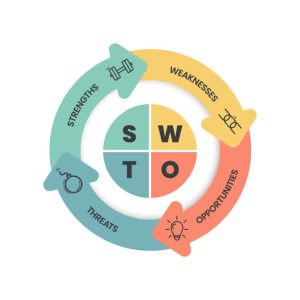Views: 26
How To Start a Successful Food Business in Nigeria

The food business in Nigeria is one of the most profitable ventures today, thanks to the country’s large population and growing demand for quality meals. From roadside restaurants (“bukas”) to modern eateries, catering services, food delivery, and online food sales, opportunities in this industry are endless. However, starting a successful food business in Nigeria requires more than just cooking skills – you need the right business plan, proper licensing, good location, marketing strategies, and the ability to stand out in a competitive market. In this guide, we’ll walk you through practical steps on how to start and grow a profitable food business in Nigeria, with tips on investment, branding, customer service, and digital marketing that can help you build long-term success. Food is a basic necessity in life—everyone needs food to survive. In Nigeria, because food is constantly in high demand, food business in Nigeria is highly lucrative.
Step 1: Plan Your Food Business
The first thing you need to do when starting a food business in Nigeria is to plan. Starting a food business requires a lot of work. You can’t just decide one day to start without careful planning. There are many things to think about to make sure you begin the right way.
To start and grow a successful food business in Nigeria, you need a plan. You can’t start a business without a clear guide. For example, if you’re going from Lagos to Abeokuta but don’t know the way, you’d use Google Maps to find your route. That map guides you, just like a business plan will guide you in starting your food business in Nigeria.
Planning your business also means defining your brand. How do you want your business to be seen in the market? You need to set your business goals, mission statement, and vision statement. How do you want people to view your brand? Where do you see your business in the next 3, 4, or 5 years?
Planning also involves picking the right location. If you want a physical shop, you need to find a good location for it. Or you could run a ghost kitchen, where you cook from home, and customers order online. For example, I run a ghost kitchen where I cook, and customers place orders online and get the food delivered.
Whatever option you pick, planning includes choosing your location.
Step 2: Conduct Market Research
The next important step is market research. Don’t skip this part! You might ask, “Why do I need market research?” It’s necessary because you need to gather as much information as possible about the food business you’re planning to start.
You have to know if there’s a market for your product and if potential customers are willing to buy your food at the price you set. Market research helps you find out if people in your chosen location will buy your food.
For example, if you’re setting up a physical shop, you need to research the area to see if there’s demand for the type of food you want to sell.
When deciding where to sell your food, make sure the food you offer is what people in that area like to eat. For example, if you sell amala and ewedu, which are popular Yoruba dishes, starting an amala and ewedu business in places like Lagos, Ibadan, or Oshogbo could be a good business in Nigeria because people in those areas love that food.
But if you try to sell amala and ewedu in a village in Abia State or Enugu State, your business might not succeed. People there may prefer traditional Igbo dishes like abacha instead of Yoruba meals like amala and ewedu. This shows why market research is so important—you need to be sure that what you’re offering is what your target customers actually want. Selling something that doesn’t interest them could lead to failure.
Another important reason to do market research is to find key relationships and suppliers that your business will need to survive. If you’re starting a food business, you have to look around your area to find suppliers who can give you the ingredients you need at good prices.
You might be thinking, “How do I even do market research?” It’s not that hard. Start by asking people who are already in the business. Reach out, ask them where they buy supplies, and which equipment is the best. You can also take online courses or watch YouTube videos to learn more.
Doing market research can be as simple as asking questions, searching for information online, and watching helpful videos. You can even make a survey using Google Forms and send it to possible customers. Ask them things like, “If I sell rice and beans, would you buy it?”
Step 3: Do a SWOT Analysis

A SWOT analysis is a planning tool used by people or businesses to find strengths, weaknesses, opportunities, and threats. If you’re starting a food business, I suggest doing a SWOT analysis. This will help you understand your strengths and weaknesses and see where you might need support.
Step 4: Choose a Business Name

Once you’ve decided to go ahead with your food business in Nigeria, the next step is to choose a business name. You want a name that resonates with your brand and reflects what you’re offering. However, the name you have in mind might already be taken, so make sure to check its availability.
Step 5: Register Your Business

Once you’ve chosen a business name, the next step is to register it. In Nigeria, this means registering with the CAC, but make sure to follow the appropriate procedures in your country. Registering your business shows that you’re serious, and people will take you more seriously as well.
If you plan to produce and sell packaged food items, apart from registering your business name with the CAC, you’ll also need to register with NAFDAC to obtain a NAFDAC number. This number will be placed on your products, allowing you to sell them legally (if you are going into food production)
Step 6: Open a Business Bank Account

Don’t wait so long to open a business bank account.
After starting your food business in Nigeria, once you register your business, open a business account immediately to manage your finances. This helps you keep personal and business money separate, and people will take your business more seriously when you use a business account for transactions. Managing your money correctly from the start is key to your business’s success.
Step 7: Funding Your Business

Now that you’ve decided to start a food business in Nigeria, you might be thinking about how to get the money for it. You can’t start a business without money, especially in Nigeria. Your financial plan will give you an idea of how much you need.
When you’re planning, don’t just keep it in your head—write everything down. If you need to buy a stove, gas, or other items, list them and write down their costs.
There are different ways to fund your business. You can use your own savings, borrow from friends or family, or, if you’re lucky, get a grant from the government. That would be great, right?
Step 8: Costing and Pricing Analysis
The next important step is to analyze the cost and pricing of your food business. Before setting your prices, make sure they are correct. Many food businesses make mistakes by thinking, “I just want to sell,” and then setting prices too low. For example, if someone is selling food for ₦5,000, and you price yours at ₦1,500 to attract customers, it might seem smart. But ₦1,500 might not even cover your costs, which means you’ll lose money. Avoid this mistake. Always price your products properly to cover your expenses.
Starting your business right is important because a poor start can lead to failure. Research shows that 9% of businesses fail in their first year, often because they didn’t start well. Part of a good start is doing a proper cost and price analysis. Don’t skip this step when launching your food business. While it’s tempting to set low prices to attract buyers, make sure you’re not losing money. If your pricing is too low, you’ll end up paying for the business out of your own pocket, which isn’t sustainable.
Step 9: Set Up an Accounting System
One important step in starting your food business is setting up a system to manage your money. Handling your finances properly is key to running a successful business. You need to know where your money is going, how you’ll pay your employees if you have any, and what daily expenses you’ll face. That’s why having an accounting system is so important.
If you don’t know much about managing money or setting up an accounting system, you can either learn or hire someone to help you. Many businesses fail because they don’t manage their money well. Money is the heart of any business, so it’s critical to handle it effectively.
Creating an accounting system doesn’t have to be complicated. The basic idea is to keep good records. You should document everything that happens financially in your business. For example, when you make a sale, write it down. When you buy ingredients like rice or beans, record them. Keeping track of every financial action in your business is essential.
It’s also important to do this in an organized way every day. Luckily, technology has made this process much easier. Instead of using pen and paper, you can now use software to keep your business running smoothly and efficiently.
Step 10: Open Your Social Media Pages and Website

We are living in a digital age, so even small food vendors have an online presence. Some are selling their products through WhatsApp! You need to take advantage of technology by opening social media pages for your business—Facebook, Instagram, Twitter—and maybe even creating a website or food business app, which is a huge step.
So, open your social media pages and prepare to sell your products. This is essential for any business today.
Step 11: Prepare to Sell Your Food Products

When you’re getting ready to sell your food products, there are some important steps to follow. First, build a brand for your business. Get all the packaging materials you need, like paper bags, carrier bags, and food containers. You should also have the right documents, such as invoices and receipt booklets, to help everything run smoothly.
After setting up, start promoting your food business. Since you’ve already opened social media pages, pick a launch date and start telling people about your business. Don’t stay silent—let people know you’re starting a food business and when they can expect it to open. If people don’t know you exist, they can’t buy from you!
Build excitement! Create flyers and put them in boxes. If you’re planning a pop-up shop, hand out flyers to people nearby to announce that you’re opening a restaurant. You need to stir up interest, but that’s not enough. Your food needs to taste great because the first customers you attract will only return if they love the food. If your food is delicious, people will keep coming back.
Step 12: Launch Your Food Business

The last step is to launch your food business. Start selling, making money, and earning profits! You’ve already prepared everything, so now it’s time to put it all into action.
One important thing to remember is that to keep making sales, you need a good marketing plan. This is a key tip I’m giving you for free, but having a marketing strategy is very important if you want to keep your business growing.
What You Need to Start
So, what do you need to start this business? Besides the steps I mentioned, you will need money, of course. You’ll also need kitchen equipment. If you’re opening a physical restaurant or food business, you’ll have to invest in items like pots, microwaves, gas cylinders, and blenders. There are different kitchen tools you’ll need to get your business running.
You also need raw materials. This means all the ingredients for cooking your food, like rice, beans, vegetables, spices, tomatoes, and peppers. Make sure you have everything ready.
- Staffing Considerations

If you plan to employ people to work for you, I advise setting aside at least three months’ worth of salaries for your staff. This is important because, while we hope to make significant sales, there may be times when sales don’t meet expectations. Keeping this fund aside ensures that you can pay your staff, preventing any issues where they might demand payment while working for you.
- Logistics Plan

Next, you need a logistics plan. Logistics are very important in any food business. I worked with different delivery companies to help get food to my customers when they placed orders. As your business grows, you might think about getting your own delivery bikes, which is great. But when you’re just starting out, teaming up with established delivery companies can be easier to manage.
Conclusion
The food business in Nigeria is lucrative, and with these steps duly followed, you are sure to be successful in starting up your food business in Nigeria.
By kingkentus








You must be logged in to post a comment.